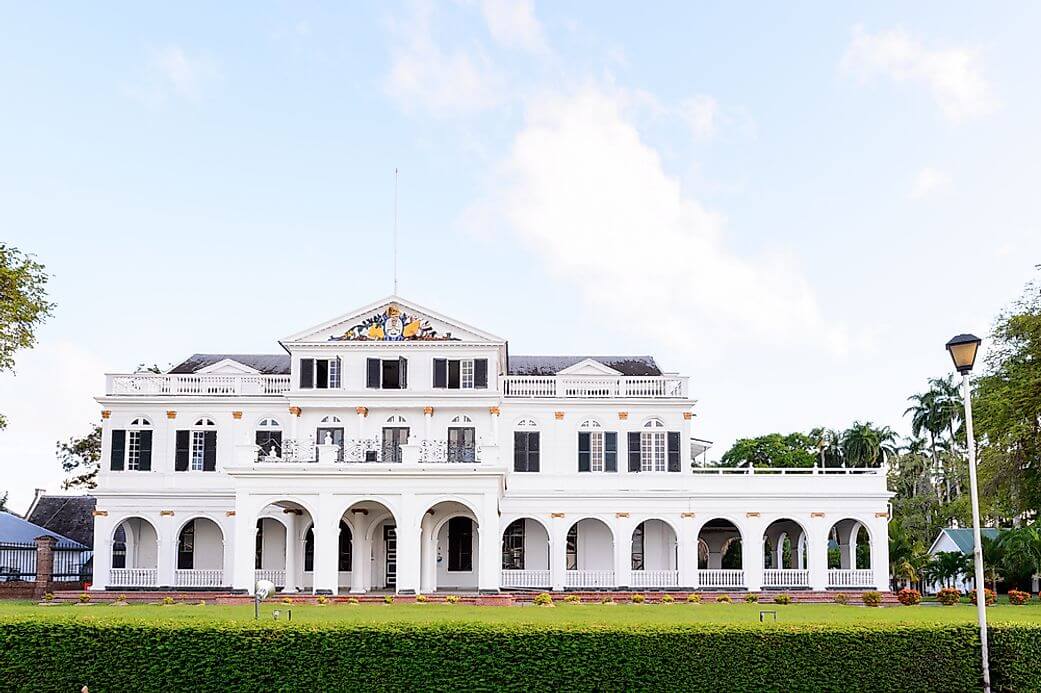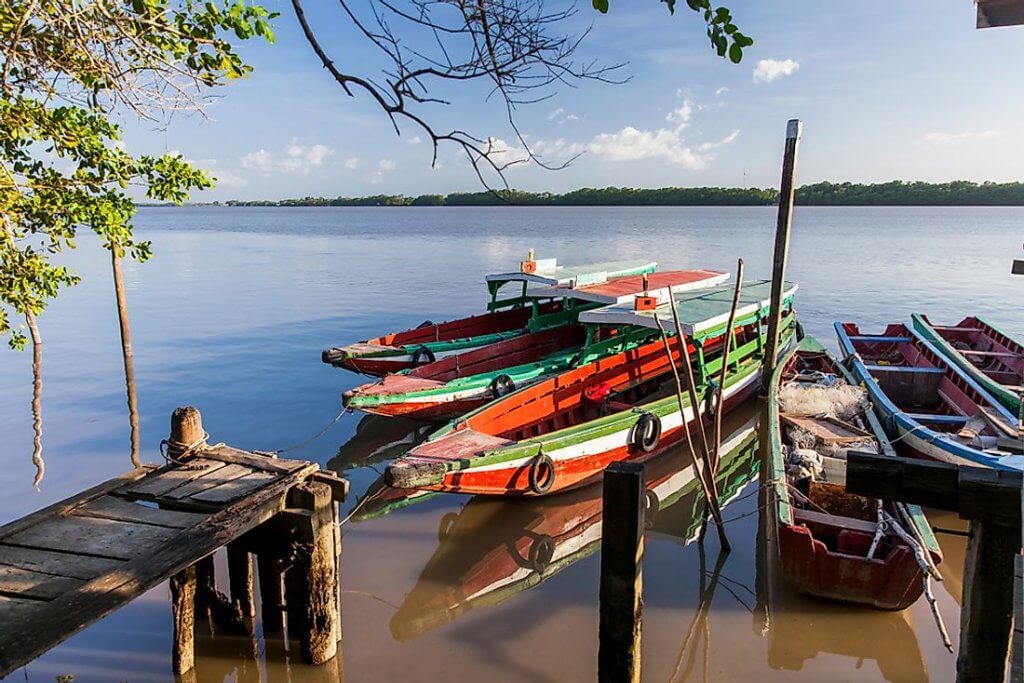Could and Would Suriname partner with the EU?

If so: how, why and when?
Amsterdam, December 27th 2021– With over 400 million inhabitants and a large sales market, the European Union (EU) is known as an economic superpower. Now that autocratic leaders dominate the world stage and America has finally proven its instability, it is important that the EU also becomes a major geopolitical player. In short: time for strategic autonomy.
Since World War II, Europe has been able to hide under the security umbrella of America. With its dominant military power, the ‘freest’ country in the world was able to guarantee European protection. In return, Washington called the shots. Headquarters of important international organizations such as the United Nations, the International Monetary Fund and the World Bank were planted in American cities and the dollar acted as the main currency.
Pax Americana, the name of this American-led division of roles, was a well-functioning formula for a long time. While the EU provided the continent with a liberal order based on agreements, values, and rules, the use of brute force was left to the Americans.
The election of Donald Trump put an end to this for good. Willing to break all standards, he didn’t hesitate for a second to ridicule institutions that endorse Pax Americana. The Paris Agreement, the World Trade Organization and NATO; not one was spared. So is the EU. The America First president no longer viewed them as an ally, but as an “enemy”; formed only to “treat America badly.”

Now Joe Biden is president. However, this does not mean that the old normal will be restored. The interests of America and Europe have been diverging for some time, even before Trump. His term has only clarified a rift that was already there. As the storming of the Capitol emphasized, America is a deeply divided country. To restore stability, Biden will have to look mostly inward in the coming years. In addition, guaranteeing the security of Europe is too much to ask – also for the new president.
The EU must therefore learn to act without being dependent on Washington. So as a sovereign player; even if it clashes with American interests. In a world where Putin annexes Crimea, Erdoğan claims waters in Greece and Xi Jinping sees investments in Eastern Europe as blackmail, it is the only way to ensure security.
This realization has also descended on European heads of government in recent years. “The times when we could rely entirely on others are to a certain extent over,” Angela Merkel noted in a Bavarian beer tent in May 2017. It is in response to Trump’s attack on NATO, the military alliance that Pax Americana most clearly shapes, as America pays for the bulk of the budget. Trump’s words lead the German chancellor to conclude that “we Europeans really must take our destiny into our own hands from now on”.
Emmanuel Macron also recognizes the importance of European sovereignty. In November 2019, he told The Economist that if Europe does not want to be wiped out, it must see itself as a ‘world power’. About a year later, in another interview, the French president emphasized the importance of an “independent and sovereign defense strategy,” even with Biden in the White House.
EU officials, such as Presidents Ursula von der Leyen and Charles Michel, and High Representative Josep Borrell, are also moving in this direction. In speeches, blogs and press moments they emphasize the importance of more strategic autonomy. The European people are too. Recent research by the European Council on Foreign Relations (ECFR) has shown that most Europeans want to get rid of American dependency. A majority even thinks that Europe should develop its own defense resources.

Mentality shift
But developing own resources alone is not enough, argues political philosopher Hans Kribbe in his book The Strongman: European Encounters with Sovereign Power. If Europe wants to become a sovereign player, able to compete against autocratic rulers, a real change of mentality is necessary. A switch from liberal, naive universalism to mature power politics. In short: Europe must be able to show its teeth.
Precisely because the continent was long protected by America and therefore did not have to deal with geopolitics, it could afford to think in the language of rules, peace and trade. This works well when you build a common market or want to avoid conflict on the continent. But in a world where autocratic leaders dominate the scene, a different language is spoken. A language of its own interests, acting above the law and brute force. A fundamental difference with the world of Europe, where ‘power’ is still a dirty word, Kribbe shows.
And that’s what makes the cover so uncomfortable. It’s all about the EU against a decades-old tradition of connection, integration and universalism – the wiping out of an ‘us’ and ‘them’. Geopolitics requires just the opposite: a clear boundary between the two. In other words: an understanding of where the European bloc ends and that of Russia and China begins. Only when this is clear will you as a player be able to distinguish between your interests and those of the other.
Don’t get me wrong, Kribbe (and I) are not arguing that Europe should give up its liberal values – such as the rule of law, democracy and human rights. On the contrary. But on the world stage, Europe must be prepared to weigh these values against other interests. Power politics is simply a matter of choice; principles sometimes have to give way. Only then can we guarantee the liberal-democratic way of life on our continent. This is not the case in a Europe dominated by China.
Kribbe describes various confrontations between Europe and ‘Strong Men’ through which it learns more and more. For example, to avert the Crimean crises, Merkel strikes a controversial deal with Putin, an autocrat who actually disapproves of Europe. Later she does the same with Erdoğan, this time as a solution to the refugee crisis. Macron – the leader who best understands power – recently struck an arms deal with Egypt, balancing Middle East stability and human rights. It’s not pretty and it raises a lot of controversy, but there were no better options – it served the strategic interest.
In particular, the collision with Xi Jinping forces us to think. Without going too hard, China’s “strong man” finances countless projects in Eastern Europe and Africa. In exchange for debt forgiveness and further investments, he then demands loyalty to Beijing. In this way he manages to win over government leaders from countries such as Greece and Hungary.
Investments from Beijing have long been tolerated under the guise of free trade. Fortunately, Europe is increasingly seeing ‘the new Silk Road’ for what it is: a Chinese means of exerting influence. Controlled strategic competition is now the approach; ensure that certain economic sectors and supply chains, such as in the digital field, remain in European hands – free from Chinese influence. It is still in its infancy, but as Macron understands: “The time of European naivety is over.”
Only, we’re not there yet. Opinion makers often fail to understand when Europe engages in harsh geopolitics. It is indicative of a mentality shift that has yet to be completed. To avoid controversy, the Union often still has to ‘whisper a little’ when it speaks the language of power, notes Kribbe. It goes against her DNA. But one thing is clear: America will protect us less and less. If we want to safeguard the European way of life and interests, we can no longer ignore it: Only the strong can be free.









